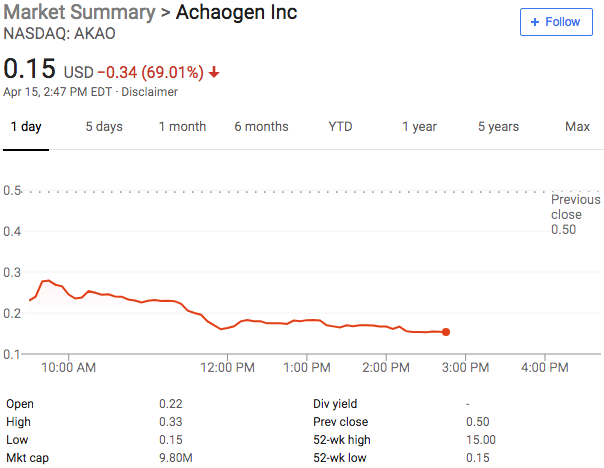🍔New Chapter 11 Filing - SD Charlotte LLC🍔
SD Charlotte LLC
February 7, 2020
SD Charlotte LLC and four affiliates (the “debtors”) filed for bankruptcy on Friday in the Western District of North Carolina. While these are smaller cases than we typically cover here in PETITION, the filing is representative of continued distress in the restaurant space. Why? SD Charlotte LLC is the owner and operator of 73 Sonic Drive-In restaurants, an affiliate is the owner and operator of 14 MOD Pizza restaurants, and another affiliate is the owner and operator of three Fuzzy’s Taco Shop restaurants. In total, the debtors employ 1,900 people and have, as the above numbers might suggest, a large presence in the south east, predominantly in North Carolina.
It’s important to note that the debtors do not indicate that their filing is the result of the various factors we’ve seen in other restaurant filings, i.e., increasing wages, poor leases, VC-backed food delivery services, etc. We can assume, though, that given significant liquidity issues arising almost immediately after the principal franchised the restaurants, that some of these factors were in play. The main issue, however, was the debtors’ debt burden: the debtors appear to have taken on too much debt and expanded too quickly in a difficult environment for restaurants; they have $22.3mm of pre-petition secured debt — a figure that the debtors acknowledge, in their filing, exceeds the value of the debtors’ assets. Ruh roh. 😬
Liquidity has been an issue for the debtors from their inception in 2017. In late 2018, the debtors had to turn to “factors” for liquidity. What the bloody hell is a “factor”? Glad you asked…
A factoring counter-party offers upfront cash payments for future receivables. Said another way, a factor will pay a discounted cash price today and take on the risk of non-payment in exchange for greater cash payments in the near future. To protect, their interest in those future receivables, the factors should obtain a security interest in those receivables and take the proper steps to record those security interests.* The debtors entered into at least at least 10 such agreements in an attempt to stave off the inevitable.
While factoring can be a viable source of emergency liquidity for struggling companies, the terms can be highly punitive. Note:
…the Debtors sold no less than $7,988,325 of future accounts receivable to the MCA Parties in exchange for cash payments in an amount not less than $5,880,000, less fees and certain expenses. These records indicate that the MCA Parties purchased the Debtors’ future accounts receivable at significant discounts, charged high fees and had the ability to debit the Debtors’ deposit accounts directly. The depletion of the Debtors’ liquidity attributable to obligations under the MCA Agreements, coupled with the seasonal downturn in the Sonic Drive-In restaurants, left the Debtors’ cash flow position untenable.
Carry the one, add the two…yeah, that’s a pretty solid discount to par value: a bit over 25%. Think about that: the debtors’ need for liquidity was so dire that they agreed to give away approximately 25 cents on every dollar that would enter their accounts because they didn’t have the luxury of time to wait for those receivables to come in. Private equity firms and others are often dubbed “vultures” but factors have a very interesting role to play here too.
And so the debtors were so low on cash that they ultimately had to get a bridge loan from their franchisor, SRI Holding Company (Sonic). The bridge loan will rollup into a DIP credit facility agreement which, with the pre-petition secured lenders’ consent, will prime the pre-petition secured debt. The DIP credit facility will finance the debtors’ cases and give the debtors some breathing room to pursue a 363 asset sale that will clear out the pre-petition debt and eliminate any and all uncertainty relating to the factoring agreements.
One final point here: it is highly unlikely that a sale will generate enough proceeds to clear both the DIP credit facility and the pre-petition secured debt. This means that general unsecured creditors will get the royal effing. Given all of the pain in restaurant and grocery chains, this begs the question: how much supply chain pain is there out there right now? Food distributors? Packagers? We reckon quite a bit.
*Here there is some question as to whether certain of the factoring agreement counterparties filed UCC-1 financing statements which may put into dispute the validity of their said security interest in those receivables. Any official committee of unsecured creditors will take great interest in whether UCC-1s have been recorded though it likely won’t matter given the value of the assets and the likely superceding security interests held by the prepetition secured lender.
Jurisdiction: W.D. of North Carolina (Judge Beyer)
Capital Structure: $450k Bridge Loan (SRI Holding Company), $22.3mm (Bridge Funding Group Inc.)
Professionals:
Legal: Moore Van Allen PLLC (Zachary Smith, Gabriel Mathless, Hillary Crabtree, Joanne Wu, James Langdon) & JD Thompson Law (Linda Simpson)
Independent Director: Finley Group (Matthew Smith)
Financial Advisor/CRO: Meru LLC (Brian Rosenthal, Alissia Bell)
Claims Agent: Stretto (*click on the link above for free docket access)
Other Parties in Interest:
DIP Lender: SRI Holding Company, SRI Operating Company, Sonic Franchising LLC and Sonic Industries LLC
Legal: DLA Piper US LLP (Daniel Simon, Davi Avraham) & Robinson Bradshaw & Hinson PA (David Schilli)

